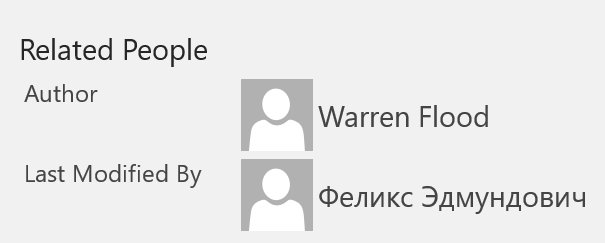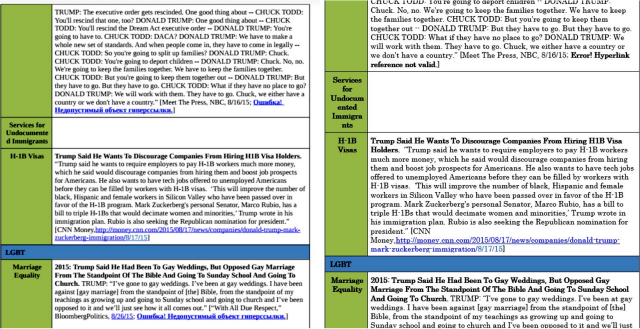
We still don't know who he is or whether he works for the Russian government, but one thing is for sure: Guccifer 2.0—the nom de guerre of the person claiming he hacked the Democratic National Committee and published hundreds of pages that appeared to prove it—left behind fingerprints implicating a Russian-speaking person with a nostalgia for the country's lost Soviet era.
Exhibit A in the case is this document created and later edited in the ubiquitous Microsoft Word format. Metadata left inside the file shows it was last edited by someone using the computer name "Феликс Эдмундович." That means the computer was configured to use the Russian language and that it was connected to a Russian-language keyboard. More intriguing still, "Феликс Эдмундович" is the colloquial name that translates to Felix Dzerzhinsky, the 20th Century Russian statesman who is best known for founding the Soviet secret police. (The metadata also shows that the purported DNC strategy memo was originally created by someone named Warren Flood, which happens to be the name of a LinkedIn user claiming to provide strategy and data analytics services to Democratic candidates.)

Exhibit B is this opposition research document on Donald Trump, the presumptive Republican presidential nominee. Exhibit B is also written in Word. Several of the Web links in it are broken and contain the error message "Error! Hyperlink reference not valid." But in a PDF-formatted copy of the same document published by Gawker a few hours before Guccifer 2.0's post went live, the error messages with roughly the same meaning appear in Russian.

The most likely explanation is that the Russian error messages are an artifact left behind when the leaker converted the Word document into a PDF. That kind of conversion would be expected if the leaker's PC was set up to use Russian.
The other piece of evidence is more circumstantial, but it still strengthens the case that the person publishing the documents intentionally or unintentionally left Russian—or at least Eastern European—fingerprints on the leak. It's the use of ")))" in the accompanying blog post. That's a common way people in Eastern Europe and Russia denote a smiley in text. The grammar in the post strongly suggests that English is not the writer's native language, although in fairness, there's nothing indicating that the writer's mother tongue is Russian or even Eastern European.
All three pieces of evidence were teased out of the documents and noted on Twitter by an independent security researcher who goes by the handle PwnAllTheThings. The theory is also consistent with everything previously published by CrowdStrike, the security firm the DNC hired to investigate its suspicions that its servers had been breached. CrowdStrike researchers said they quickly determined that the servers had been infiltrated by two separate Russian hacking groups. In response to Wednesday's leak, CrowdStrike raised the possibility that the leak was part of a Russian Intelligence disinformation campaign. Company officials declined to comment on Thursday for this post.
"There's also the fact that the hacker is publishing documents at all, which rules out lots of nation-states," the PwnAllTheThings researcher told Ars in a private message. "China, for example, would happily spy on the DNC to try and get the Trump oppo [opposition] research to support their foreign policy objectives, but they wouldn't publish the documents to influence the election."
A pretty big deal
Dave Aitel, CEO of Immunity Security, a firm that provides advanced hacking tools to security professionals, agreed with the researcher's theory.
"I think his analysis is very believable when you look at what CrowdStrike is saying and when you look at what other people are not saying," Aitel told Ars. "You don't have the FBI or DHS coming out and saying: 'Hey we don't think it's Russia.' If it is Russia, a nation state, it's a pretty big deal. Otherwise the FBI would say: 'We're conducting an investigation.' But they're not saying that."
Of course, it's still possible that the Russian fingerprints were left intentionally by someone who has no connection to Russia, or by a Russian-speaking person with no connection to the Russian government, or any number of other scenarios. The abundance of plausible competing theories underscores just how hard it is to accurately attribute attacks online and how perilous it is to reach summary conclusions.
Readers are once again advised to keep an open mind, and that means recognizing that Wednesday's leak by Guccifer 2.0 is merely consistent with what CrowdStrike has reported. On its own, the leak neither impeaches the veracity of the report nor does it prove it. If the government of Russia or any other country is using hacking in an attempt to influence the outcome of a US presidential election, that's an extremely serious development. But given the house of mirrors surrounding this entire episode, the evidence should be thoroughly investigated before anyone reaches that conclusion.
reader comments
100